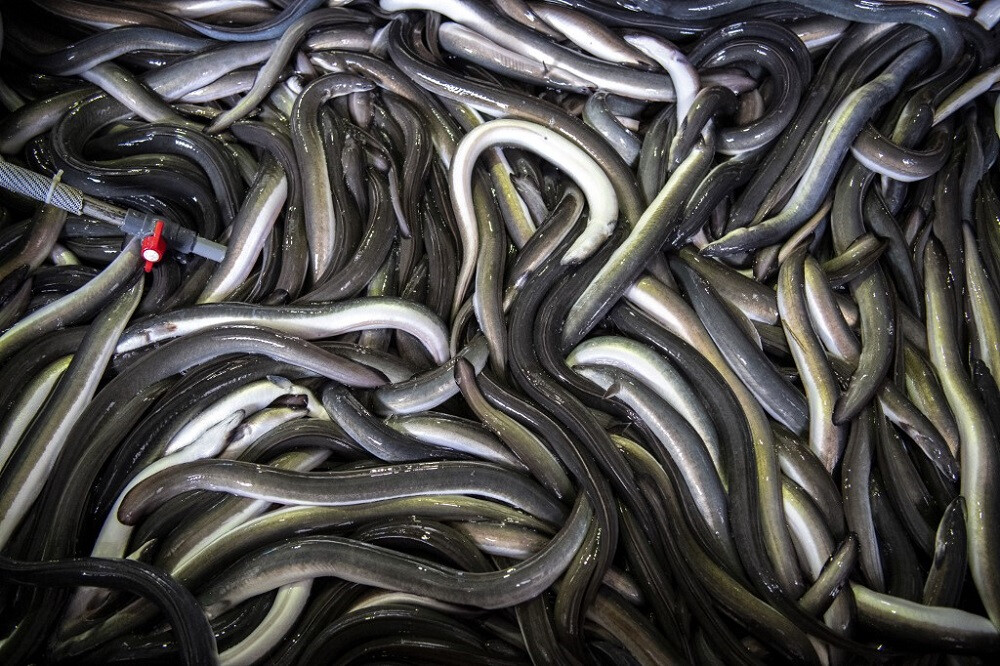
Singapore – Consuming unagi in Singapore often means unknowingly contributing to the decline of endangered eel species, a recent study reveals. Scientists from Yale-NUS College analyzed 257 unagi products sold across Singapore, from supermarkets to restaurants, and discovered that a staggering 99.6 percent contained genetic traces of threatened freshwater eels. Their findings were published on January 9th in the journal Conservation Science And Practice.
Unagi, the Japanese term for freshwater eels, is a popular delicacy in East Asia, typically grilled and glazed. This high demand has led to the overfishing of these eels, which belong to the Anguillidae family. While there are approximately 19 freshwater eel species globally, the Singaporean market primarily consumes three: the Japanese eel (Anguilla japonica), the European eel (Anguilla anguilla), and the American eel (Anguilla rostrata).
Alarmingly, all three of these species are listed as threatened on the International Union for Conservation of Nature (IUCN) Red List. The European eel is classified as critically endangered, while the Japanese and American eels are both endangered, indicating a high risk of extinction in the wild.
The study, led by principal investigator Joshua Choo, a former environmental studies undergraduate at Yale-NUS College, was prompted by concerns about the prevalence of European eels in Asian markets despite a 2011 zero-export quota imposed by the European Union. A 2020 report indicated a significant presence of European eels in Hong Kong, leading the researchers to investigate the situation in Singapore.
In July 2023, Choo and his team collected 266 freshwater eel meat samples from various retailers and online platforms shipping to Singapore. The samples included dried, cooked, and fresh eel to ensure a comprehensive analysis. By extracting DNA from each product and comparing it to known genetic sequences, the researchers identified the species present.
Surprisingly, the study found that the American eel dominated the Singaporean market. Out of the 257 samples where DNA was successfully obtained, 217 (84.4 percent) were identified as American eel. Japanese eel accounted for 36 samples (14 percent), while only three samples contained European eel. Notably, one sample was mislabeled as unagi and was found to be a pink cusk-eel, a saltwater species.
Choo expressed concern over this shift towards the American eel, highlighting it as a worrying trend of the industry substituting one depleted species for another. This pattern of exploitation, population decline, and switching to a new target species is a well-documented issue in the global eel trade.
Historically, the Japanese eel was the primary target for unagi dishes. However, overfishing led to a decrease in its population and a subsequent increase in price. The industry then turned to the more affordable European eel. According to a report by the Convention on International Trade in Endangered Species of Wild Fauna and Flora (CITES), a significant proportion of exported juvenile European eels were destined for aquaculture farms in Asia between the late 1990s and 2007.
Now, with European eel populations also plummeting, the focus appears to have shifted to the American eel. Choo cited data showing a significant increase in American eel imports to East Asia, rising from two tonnes in 2004 to 157 tonnes in 2022.
The researchers now fear that freshwater eel species in Southeast Asia could be the next to face increased fishing pressure to meet the persistent demand for unagi.
The findings underscore the urgent need for greater transparency and sustainability in the unagi supply chain. Consumers are often unaware of the conservation status of the eels they are consuming. Experts advocate for stricter regulations, improved traceability, and increased consumer awareness to mitigate the threat to these endangered species. Sustainable aquaculture practices and the development of lab-grown eel alternatives are also being explored as potential solutions to alleviate pressure on wild eel populations. The study serves as a critical reminder of the global impact of consumer choices on biodiversity and the importance of informed consumption.
[Copyright (c) Global Economic Times. All Rights Reserved.]




























